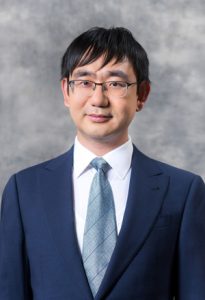
Biographical Information:
Xin (Sunny) Wang received his B.S. in Physics from Peking University, China, in 2005. He then went to the United States for graduate study in Columbia University in the City of New York, where he received Ph.D. in Physics in 2010. His Ph.D. study was focused on the theory of strongly correlated materials, in particular the high-temperature superconductors. From 2010-2015, Dr. Wang was a Research Associate in Condensed Matter Theory Center at University of Maryland, College Park, U.S.A. He joined City University of Hong Kong in 2015. His current research interests include quantum computation using electron spins and correlated electron systems.e.Abstract:
Application of optimal control in quantum parameter estimation and quantum hypothesis testing
This presentation explores optimal control techniques in quantum parameter estimation and quantum hypothesis testing. In quantum parameter estimation, we use reinforcement learning to generate highly generalizable control sequences, outperforming traditional methods like GRAPE. We extend this approach to cases with multiple parameters, significantly reducing computation time. This highlights the potential of reinforcement learning for efficient and generalizable control sequence generation in quantum metrology, particularly for system ensembles [1]. In quantum hypothesis testing, we assess the impact of inaccuracies in quantum control and introduce a robust control approach that can tolerate signal noise. Both optimal and robust control strategies show enhancements over uncontrolled schemes for various dephasing or decay rates [2]. These findings advance our understanding of quantum technology's performance and reliability in quantum hypothesis testing. This work is supported by the Research Grants Council of Hong Kong (Grant Nos. CityU 11304018, CityU 11304920) and the National Natural Science Foundation of China (Grant No. 11874312).References
[1] H. Xu, L. Wang, H. Yuan, and X. Wang, Phys. Rev. A 103, 042615 (2021).
[2] H. Xu, B. Wang, H. Yuan, and X. Wang, New J. Phys. 25, 113026 (2023).